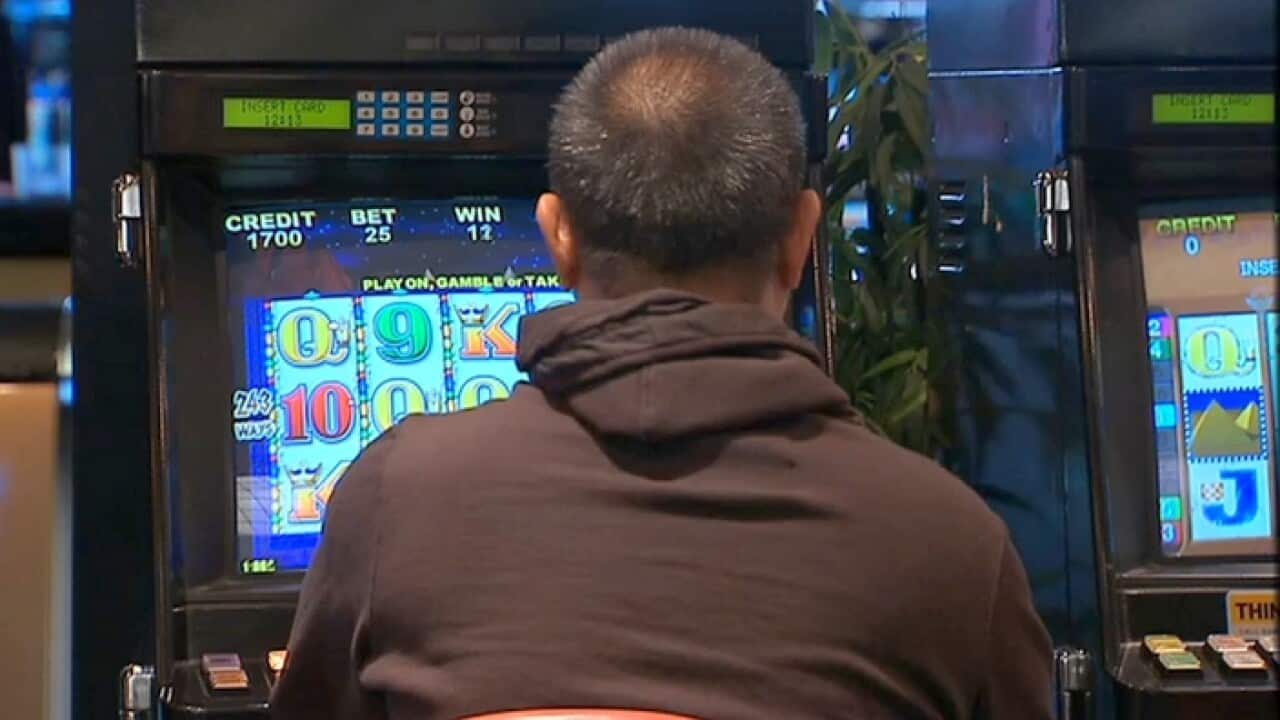Na faaalia e Dr Christopher Hunt o se foma'i o le mafaufau i le GambleAware i Sini, o le tau e aofia ai a'afiaga i le soifua maloloina o le tino ma le mafaufau o se tagata, atoa ai a'afiaga i mafutaga i totonu o aiga ma le lumana'i manuia o fanau.
“We want people to take a step back and look at the big picture around their gambling and think about what it's costing them not just in terms of financial impacts but also in terms of their mental and physical health, the impact on their work, and whether or not it's causing tension at home.”
E faatusa i le $25 billion e gau i taaloga petipetiga i Ausetalia i tausaga ta'itasi, ma avea ai Ausetalia ma atunu'u aupito tele le aofa'i o tupe gau a tagata ta'ito'atasi mai taaloga peletupe nai lo seisi lava atunu'u i le lalolagi.
I se su'esu'ega a le Australian Gambling Research Centre, na iloa ai o le 73% o tagata matutua i Ausetalia (18 i luga tausaga le matutua), na peti sana tupe i se taaloga i le 12 masina ua tuana'i - 38% e peletupe i vaiaso uma.
O le 'afa o tagata na auai i le su'esu'ega, o loo i se tulaga lamatia mai a'afiaga o le peletupe.
O se tasi o tagata faigaluega fautua poo se counsellor i le Gamble Aware, o le tamaia'i o Alice Russell. Na ia ta'ua le iai o tagata ua 'ave faamalosi pe faatau le fale e peletupe ai.
"They have a huge impact on people's lives that can lead to them losing their homes because they prioritise paying for gambling over their rent or their utilities (power and water). It varies greatly person to person and it often develops slowly so people find that they are spending money on gambling. As they get drawn in more and more - and I have to stress this is not everybody - but as they get drawn in more and more they may borrow money to pay their basic expenses. Then they may start to neglect paying their rent or their utilities and the next thing they know they find that they might be at risk of being evicted from their property or they have debt collectors chasing them."
O isi a'afiaga e pei ona saunoa Dr Hunt, o le tuai ai i galuega pe vaea ai ma se galuega, le le faia ai o meaa'oga ma i'u ai ina le pasi su'ega ma afaina ai le lumana'i manuia o se tamaititi, misa ma sauaina ai nisi i totonu o aiga.
"Obviously gambling can have a devastating financial impact on individuals. But beyond that it can also impact people in a variety of different ways. So people might be distracted at work or fall behind with their studies because they're spending time and money gambling. It might cause tension with their loved ones, their family members, their partners; and it might impact their mental health as they might be experiencing depression, anxiety and stress, and potentially even their physical health, if they're not eating right, if their sleep is suffering, and they're not able to take care of their medical appointments."
Na saunoa le faafeagaiga ia Tim Costello, o le Alliance for Gambling Reform, o le peletupe ua avea ma mafua'aga o le tele o faafitauli i le soifuaga o tagata i Ausetalia nei.
"We are number one in gambling losses in the world - 40 per cent higher than the nation that comes second. And if you wonder why, it's because we've had the most irresponsible policies; 75 per cent of all the world's pokies in clubs and pubs are here in Australia. Most pokies elsewhere are in casinos, that's destination gambling, you've got to get their. Here, they're on every fourth block, and they're always open and people weren't intending to gamble, they were just intending to shop. And they have an extra half an hour on their parking and they're lured in. So gambling is our greatest public health issue."
Ripoti a Omoh Bello mo le SBS News.

